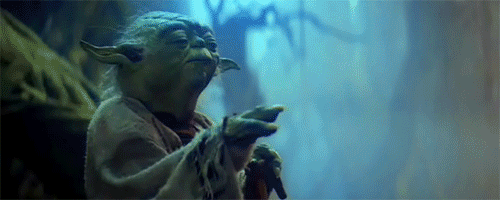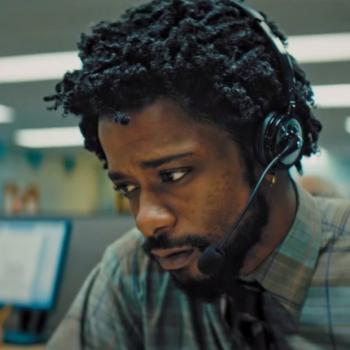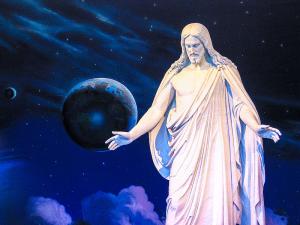
I don’t know if you’re aware of this, but there’s a new Star Wars coming out next month. Remember Star Wars? It was a 1977 low-budget film from the chronically anti-social merchandising kingpin George Lucas that shamelessly ripped of Kurosawa and Frank Herbert. Believe it or not, the film was followed by not just one but two sequels in the ‘80s, and then an entire prequel trilogy in the early ‘00s. Now Disney owns the property and is planning on inundating the public with more Star Wars films from now until the collapse of modern civilization, which I’m sure will have nothing to do with an overwhelming exhaustion from an annual ritual of consuming media devoted to space warfare.
Cynicism aside, Star Wars was an early obsession of mine, and while I did my best to stave off excitement over this next phase of the franchise, I must admit that I’ve got myself worked up into an absolute fever over Episode VII. But I also have to be cautious, given the dismal disappointment I experienced with the prequels.
I know what you’re thinking, and yes, we don’t need another whiny geek rant about how awful those films are. And that’s not really my intention. I am kind of a Star Wars purist, so in my mind the original release is basically sacrosanct, and while I’m sort of ambivalent to the whole “Han shot first” controversy, if you catch me on a bad day I could easily go on for hours about the ridiculous rocks in front of R2-D2 on the Blu-ray release.*
My point is, there is a fundamental spiritual element to Star Wars. The Force, as it is called in the films, works as a kind of generic cosmic faith, and the films’ heroes, the Jedi, are pious defenders of that faith. It is introduced in the original film as a sort of abstract and foreign concept—Luke Skywalker, growing up on a desert farm far from the center of the universe, is completely ignorant of The Force. In that film, we also see the faith’s detractors, both among the Imperial generals—a militarist secular government—and among the heroes with Han Solo, a de facto scoundrel, or sinner. Eventually, Solo comes to terms with The Force and accepts its place in the universe. The Imperials are also nearly choked to death with The Force by Darth Vader. Basically, any critic of religion in Star Wars eventually comes around.
And that’s kind of the end of it. From that point forward, The Force is a given reality in the Star Wars universe. When we do go back in the prequels, only twenty years before Luke has no idea about The Force or Jedi or anything, we see that the Jedi are a thriving and robust organization, with their own temple right in the heart of the Galactic capital. That’s kind of weird, right? If we go by the actor’s age, Han Solo was a teenager during that time, and yet he says he’s seen nothing that would convince him of the existence of The Force? Even when the Jedi were using it to wage a massive war across the galaxy?
To me, that’s another missed opportunity of the prequel saga. Lucas could have used the fall of the Jedi to explore spiritual conflict and loss of faith. I suppose it doesn’t exactly fit into Anakin’s narrative, since he remains one of the true believers in the original trilogy. But couldn’t a faith crisis have been part of his journey to the dark side? Or perhaps his overzealous devotion to a religion that had fallen out of popularity helped shape his anger, and strengthened his resolve to follow his own dark side guru, Emperor Palpatine?
Ultimately, there is no point in playing hypotheticals with the prequels. But perhaps the new trilogy will explore these ideas. The trailers have given a few hints of the public perception of The Force, with the once-skeptic Han Solo ensuring that it is “true, all of it.”
But what we need to see is an individual struggle with accepting The Force as a religious identity. Especially when the earlier films give us such a complicated history with it. If anything, the prequels exposed the Jedi as prophetically blind, and borderline corrupt. Even in the original trilogy, Obi-Wan is an outright liar. Even some of The Force’s fundamental truth claims are explained away with scientific evidence (yes, I’m talking about midichlorians). If the new Disney films are going to draw on the prequels at all (my guess is they won’t) why not prop them up as a case of unflattering history? Maybe Obi-Wan’s lies about Anakin were just the starting point for Luke’s eventual spiritual battle with accepting whether or not he even wants to bring back the Jedi.
If The Force was a real religion, all of these factors could easily send a padawan into a faith crisis. It certainly did with the fans. That’s why these films would benefit from such an arc. We need it because just as the fans need Star Wars to prove itself again, The Force needs to prove that it is worth the characters’ devotion. If there are angry zealots on the dark side willing to kill for it, we need to see our heroes stare down their beliefs and ask if the war is actually worth fighting.

But then, in many ways The Force is easier than actual religion. There is very little moral ambiguity with The Force. It’s either good or bad (another assumption worth questioning, but that’s for another post), and ultimately, faith in The Force is always rewarded; with telekinesis, visions, laser swords, and sometimes actual lightning. Real life spiritual battles are far less spectacular, but that’s why it works as a metaphor. We often claim that faith can move mountains, and in Star Wars it actually does.
I’m mostly optimistic about The Force Awakens. The trailers look great and I’m confident in J.J. Abrams’ practical approach. And if they don’t get it right in this film, apparently they’ll have plenty of chances to try again.











